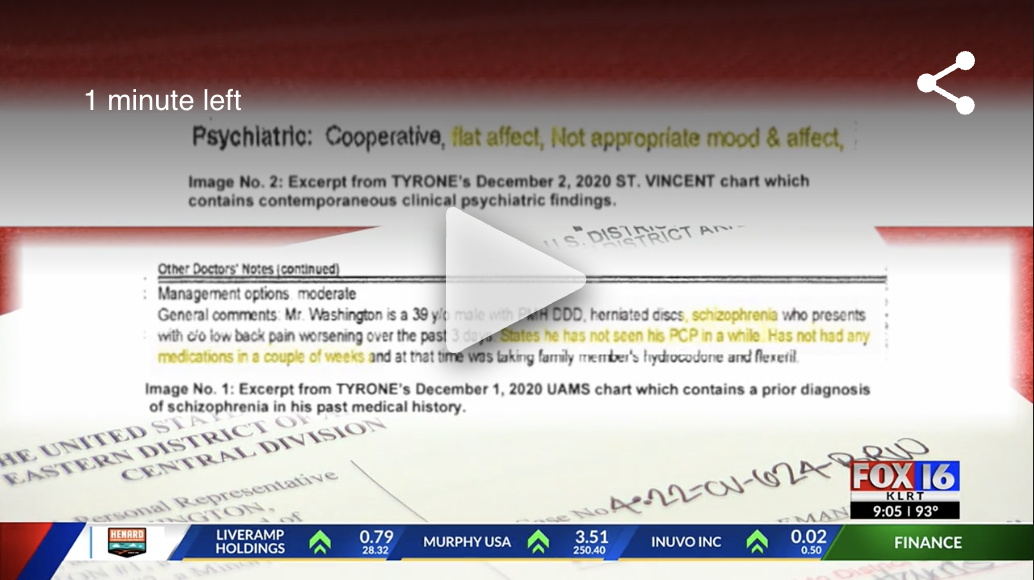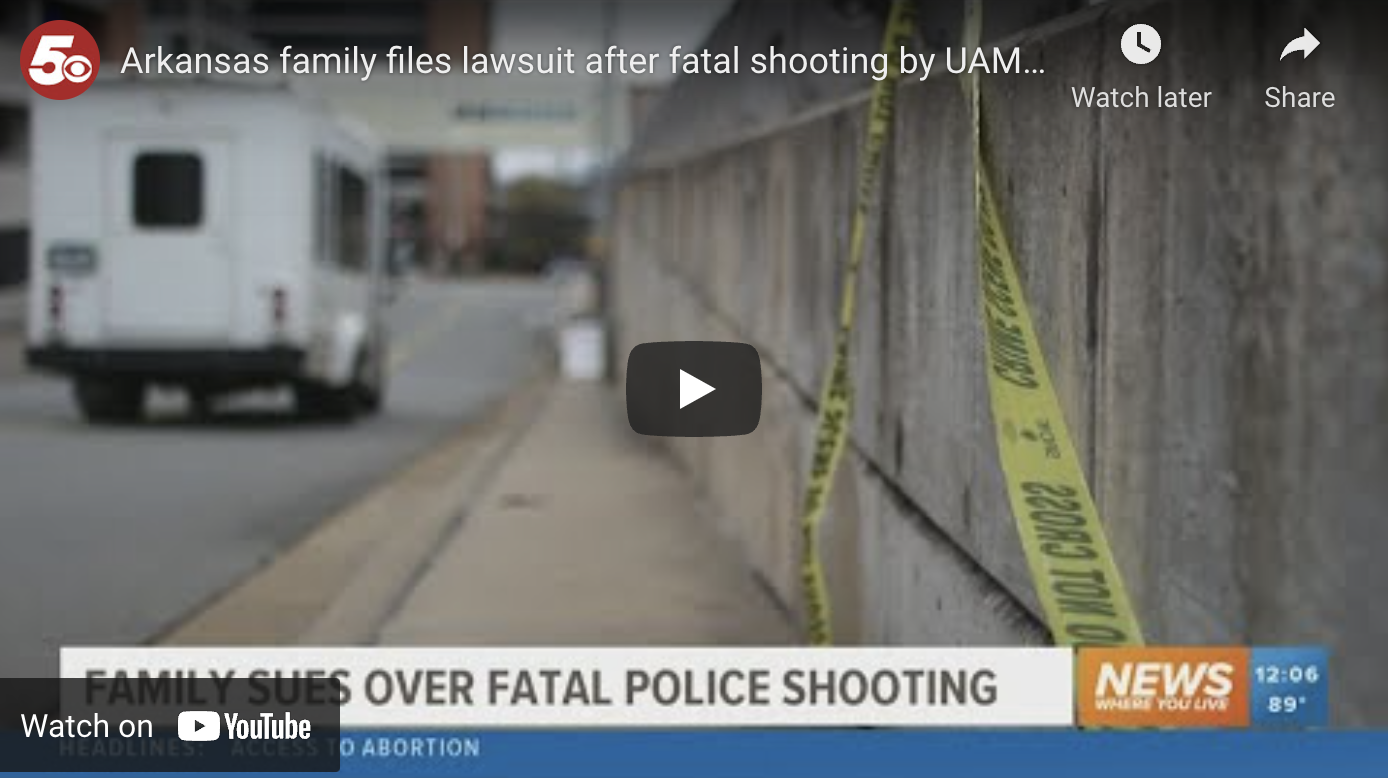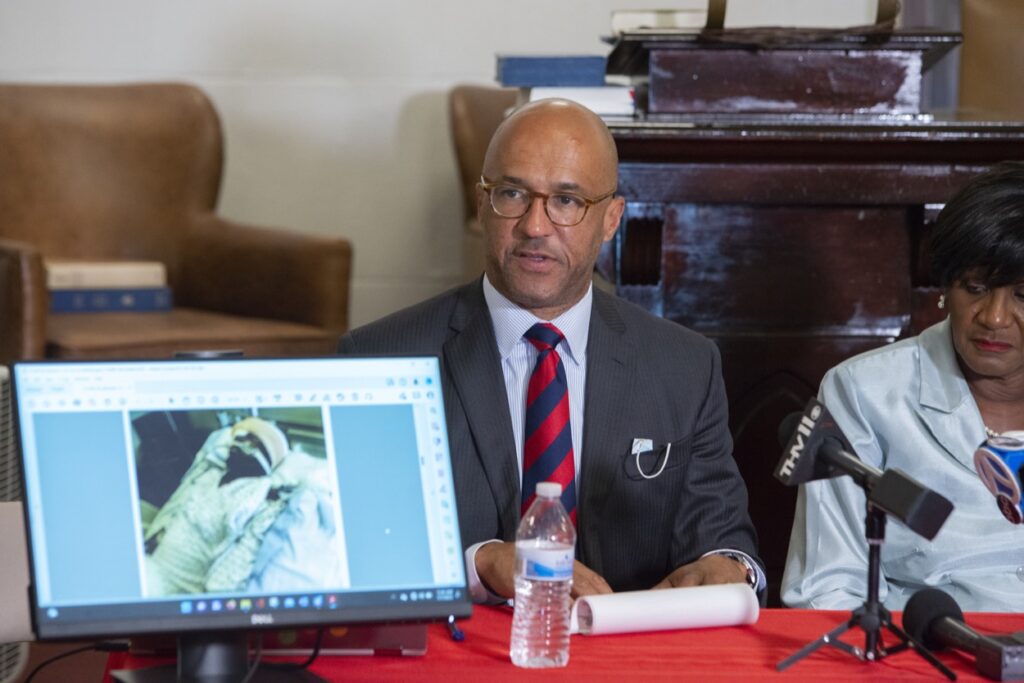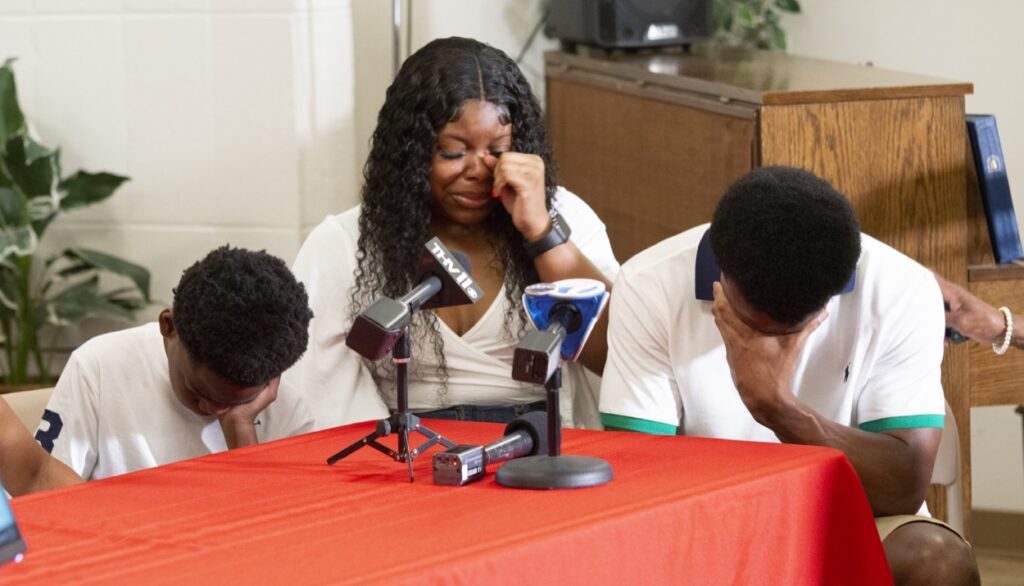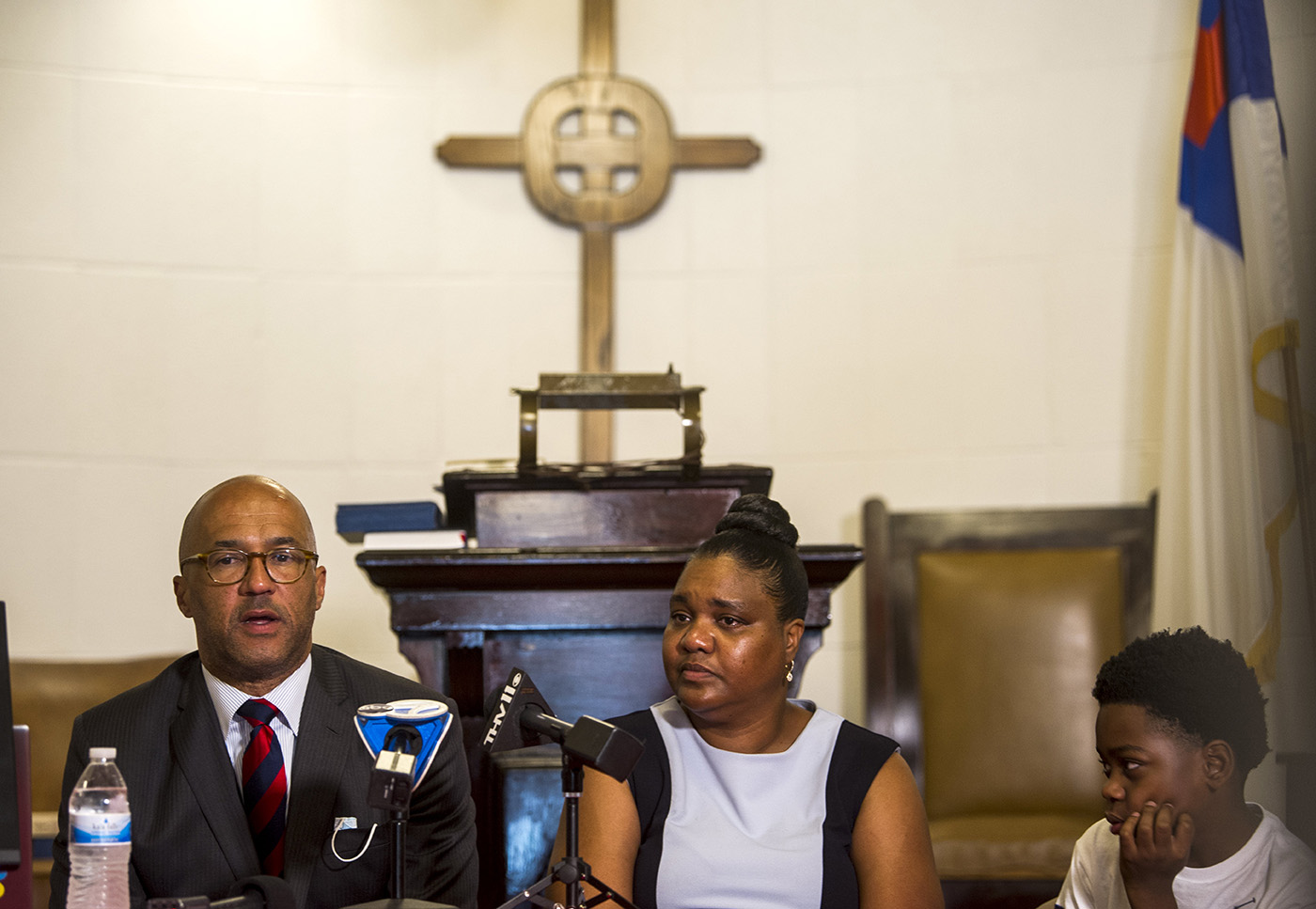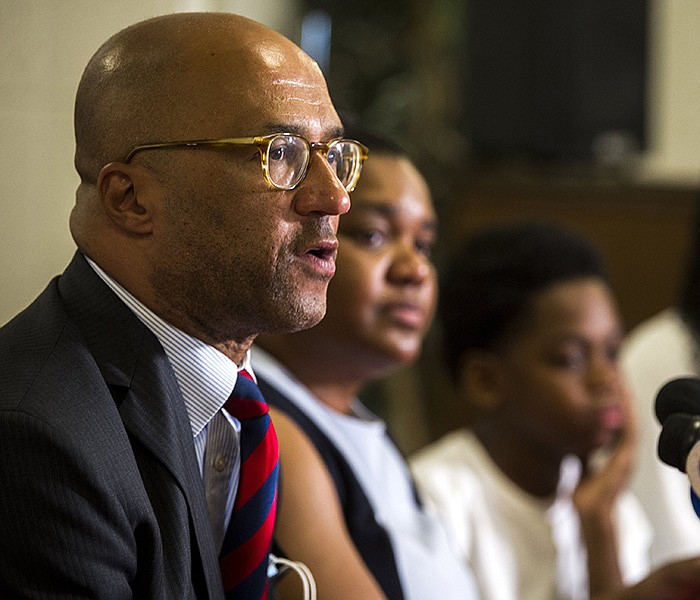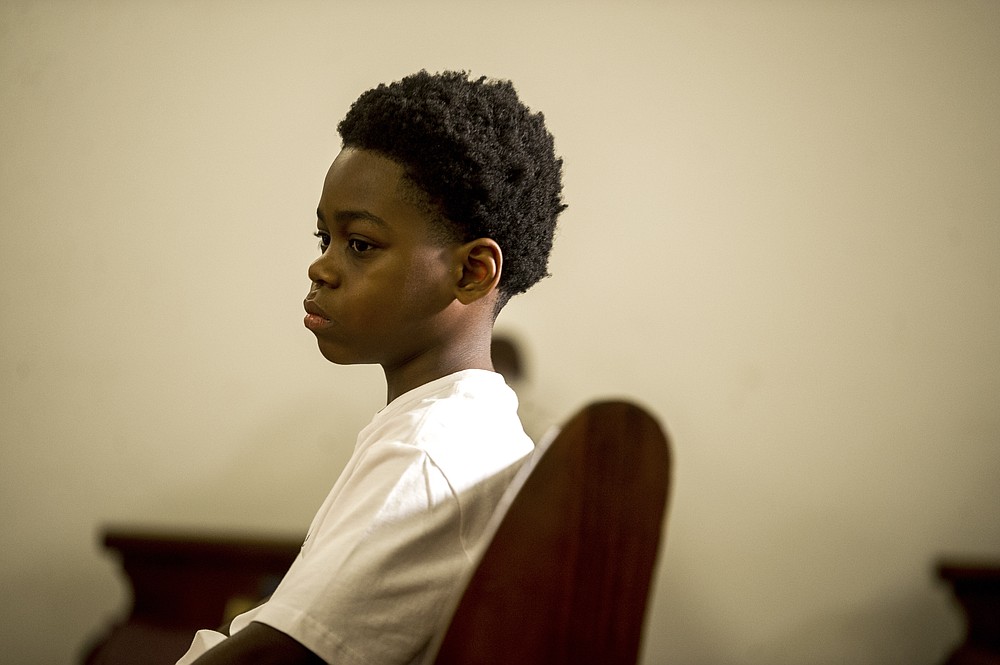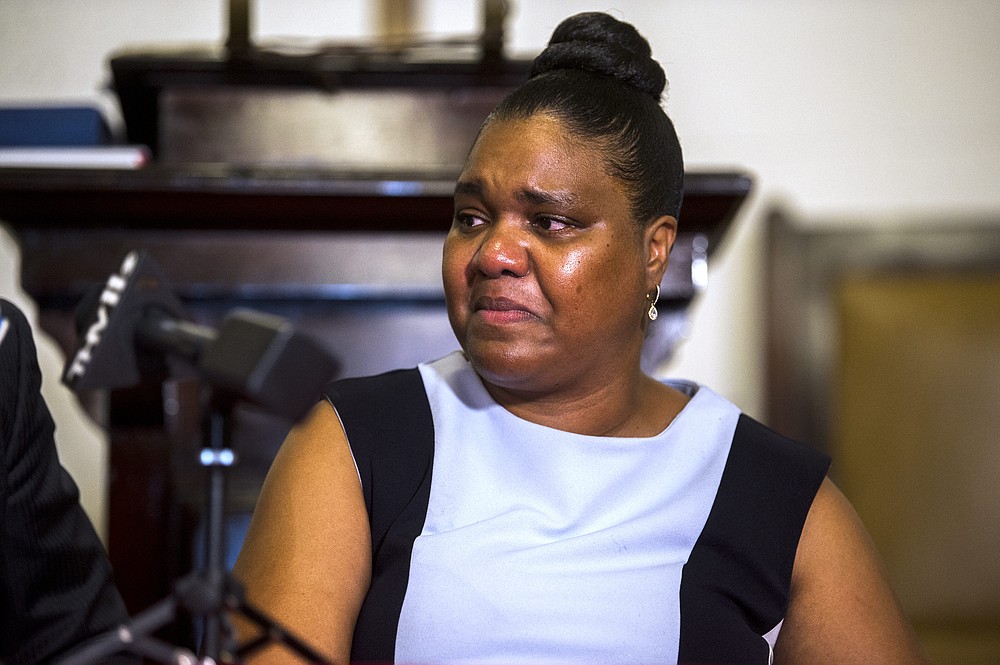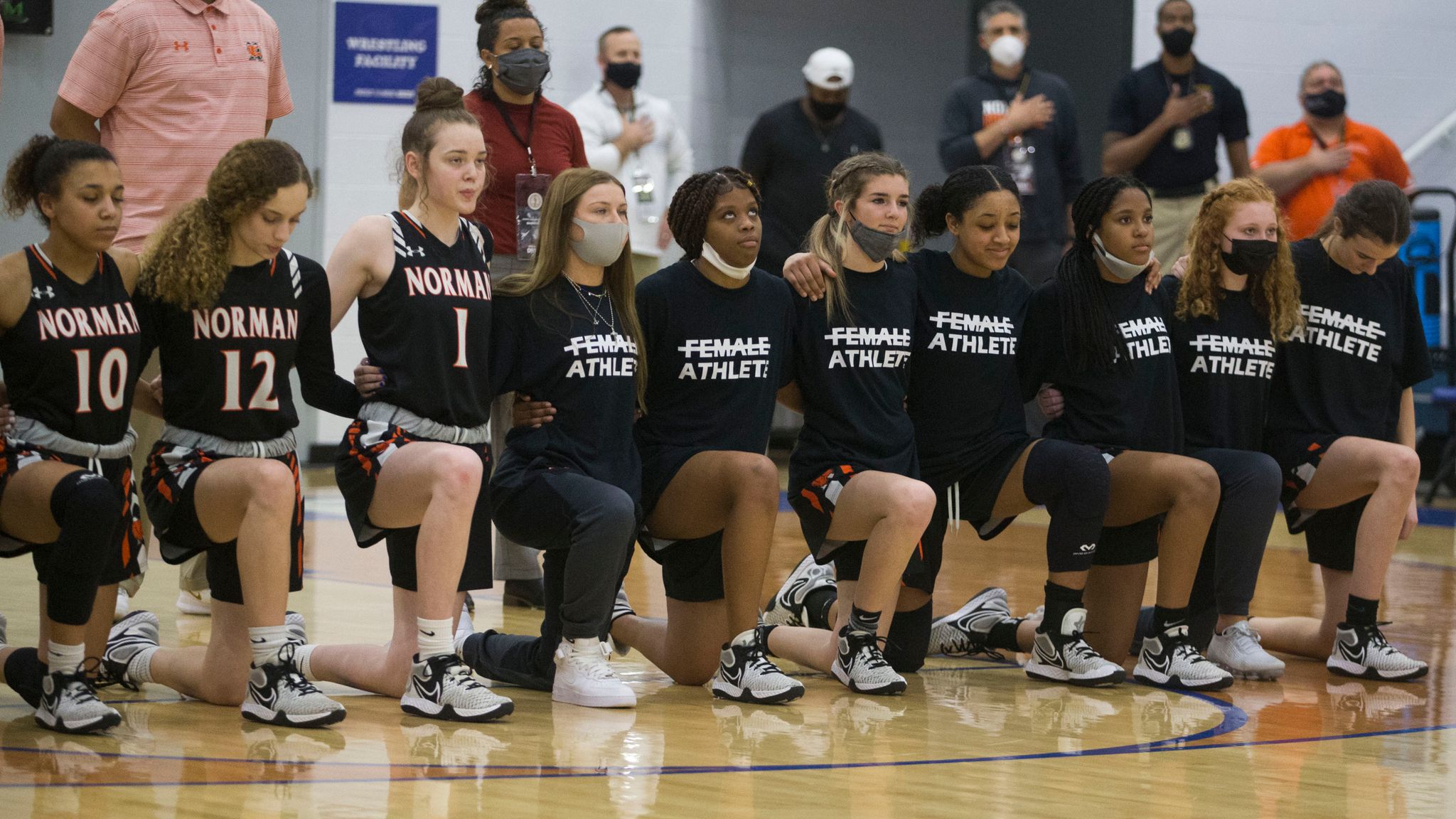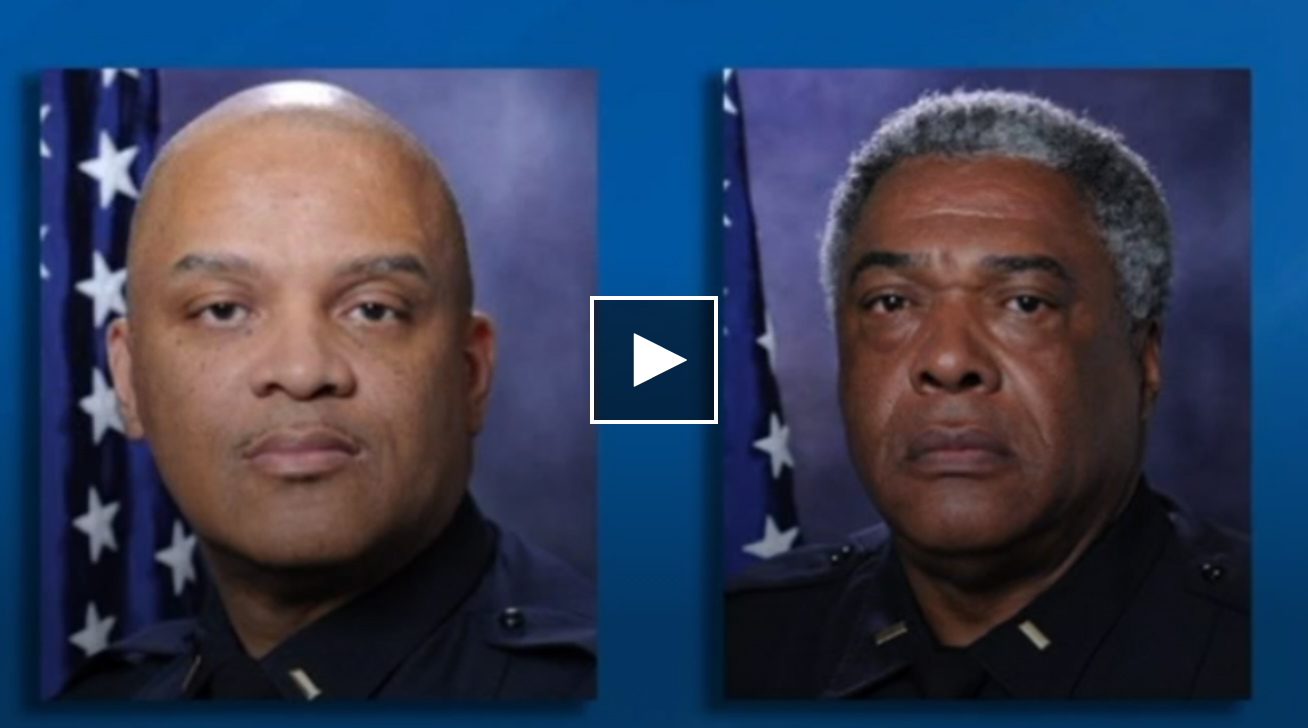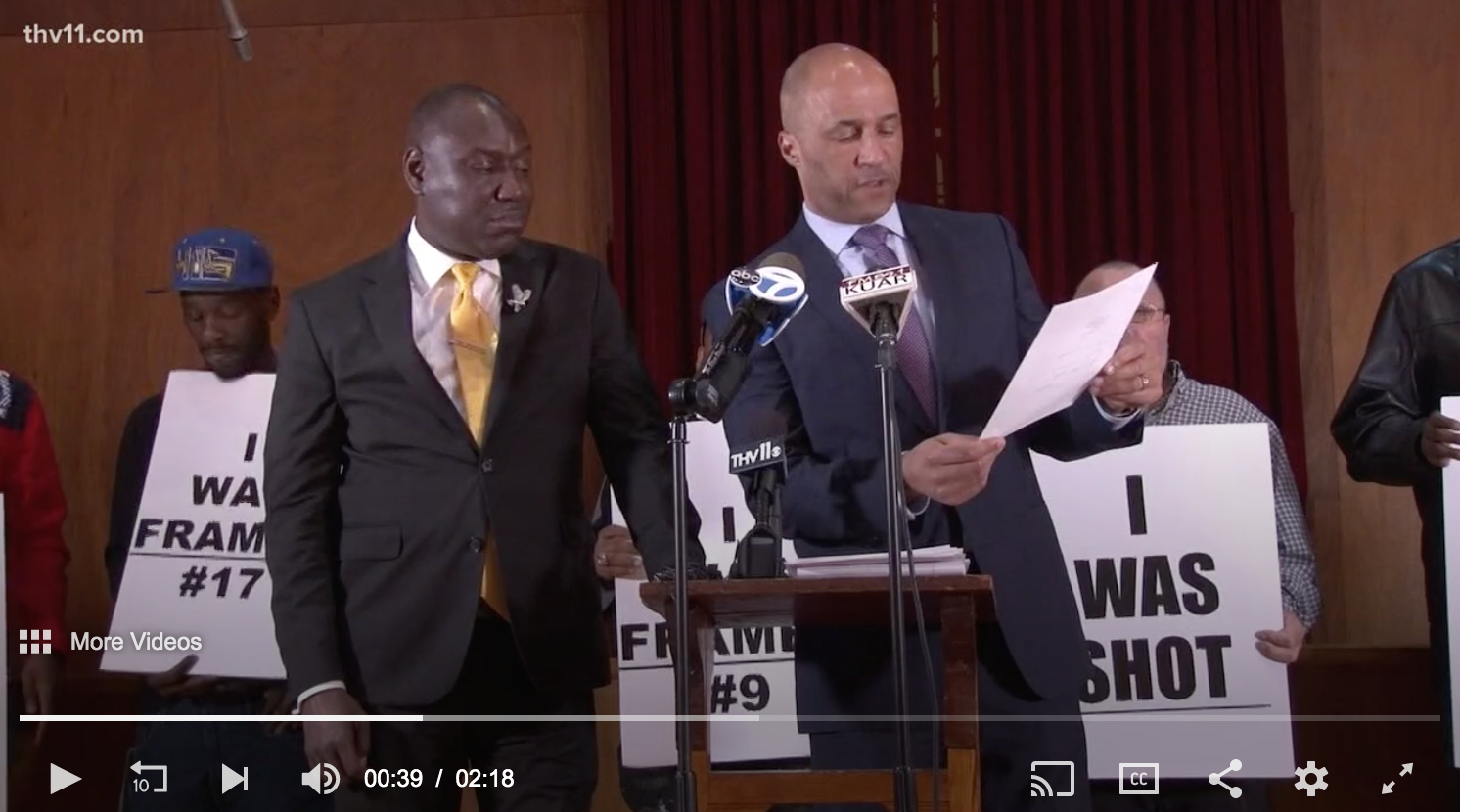Matthew Glowicki for the Courier Journal
Published June 19, 2018 | Updated June 29, 2019
More than 10 years after she says she was sexually assaulted, a woman is suing investigators with Louisville Metro Police claiming her case was mishandled and she was repeatedly lied to about its status.
“We trusted them,” said Salisa Luster Harrison, who says she was assaulted in her Louisville apartment by an unknown assailant. “We relied on them. We thought that they were going to do what they were supposed to do, but they did not.”
The Courier Journal typically does not name people who claim they were sexually assaulted but is doing so in this case because Luster Harrison has gone public with her lawsuit, including speaking at a press conference on Tuesday.
Claims made in a lawsuit represent only one side of the case. A police spokesman declined requests to discuss the case, saying the department doesn’t comment on pending litigation.
Luster Harrison’s legal team includes Ben Crump, a Florida-based civil rights attorney known for taking on high-profile cases.
He represented the families of Trayvon Martin, a 17-year-old shot in February 2012 in Sanford, Florida, by neighborhood watchman George Zimmerman; Michael Brown, an 18-year-old shot and killed in August 2014 by a white police officer in Ferguson, Missouri; and Alesia Thomas, a 35-year-old woman who died after being kicked and hit by a Los Angeles police officer.
Louisville attorney Lonita Baker and Chicago-based attorney Mike Laux also represent Luster Harrison.
Her 27-page lawsuit, filed Tuesday in U.S. District Court, alleges she was treated differently by Louisville police because she is African-American and seeks unspecified damages. It names 10 current or former law enforcement members as defendants.
“At best they misled her, at worst they lied to her when they told her they had tested the rape kit,” Crump said at Tuesday’s press conference.
Officer Robert Woolridge responded to a welfare check on Luster Harrison — who had missed work — but failed to investigate or call for medical assistance despite the woman’s severe injuries, the suit alleges.
The suit adds that after she was taken to the hospital, Officer Brian Tucker launched an investigation but failed to collect vital evidence from the scene and interview obvious witnesses.
The suit alleges Woolridge and Tucker did not have the rape kit fully tested, yet told Luster Harrison and prosecutors it had been and that evidence was inconclusive. Both felony and misdemeanor prosecution was denied, according to the suit, and in 2009, the case was closed.
Then, in 2015, the case was reopened amid a statewide push to test old rape kits.
The lawsuit says that Luster Harrison’s mother, Cheryl Ellis, was told that the kit would be tested due to advances in technology and that Ellis obtained police emails in which the case was described as one that “fell through the cracks in a lot of areas.”
Luster Harrison said she was told in late 2016 by Special Victims Unit Lt. David Allen that new testing did not yield any new information, but the suit claims that testing was never performed.
Ellis and Luster Harrison said Tuesday they have fought for the last decade to get answers in the case, filing records requests and leaving messages with investigators.
Crump said at Tuesday’s press conference that the Kentucky Attorney General’s Office had gotten involved in the matter.
In a statement, an office spokesperson said, “Our office has provided victim advocacy services to the family and worked with LMPD to have the kit resubmitted to the crime lab.”
Crump said he has no information to suggest Luster Harrison’s rape kit was tested as part of a recent effort across the state to clear a backlog of untested kits.
A 2015 audit mandated by the state legislature found 3,090 kits in the property of law enforcement that were never tested for possible DNA evidence.
Since the audit, more than 3,100 kits have been tested as part of the backlog initiative.
Reporter Matthew Glowicki can be reached at 502-582-4989 or mglowicki@courier-journal.com.


